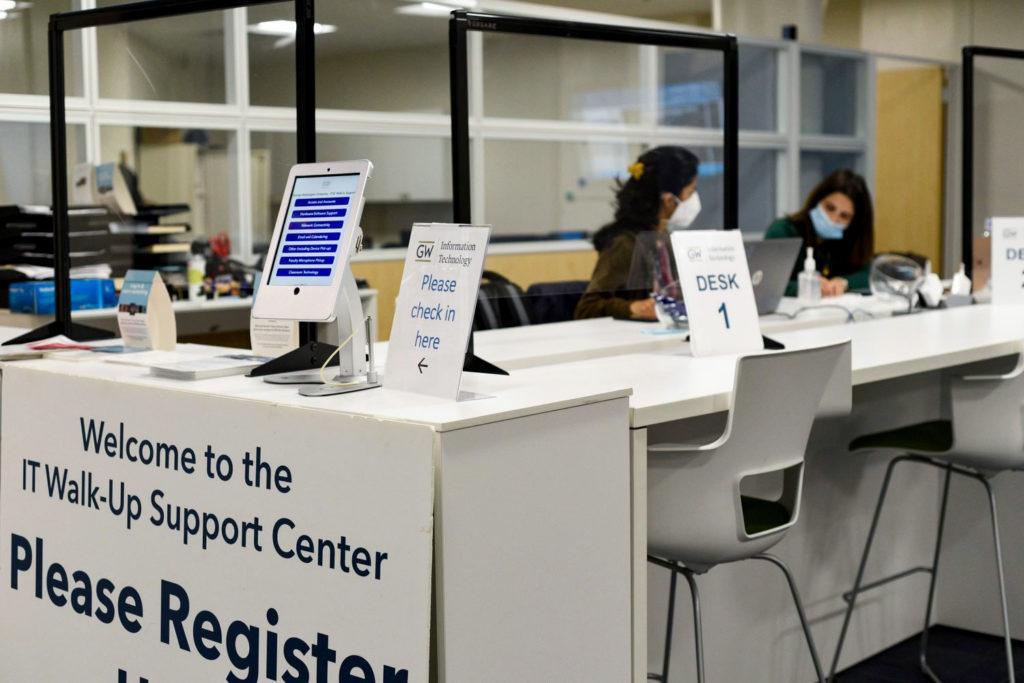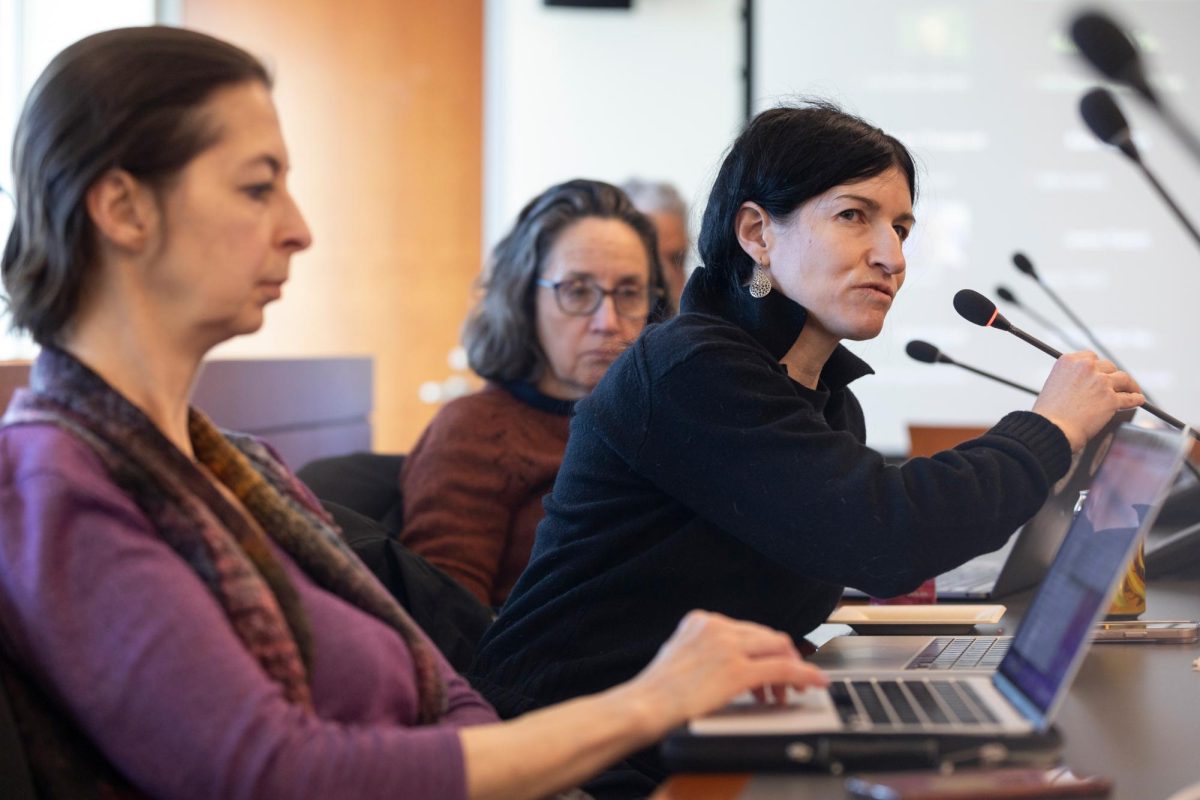Updated: March 8, 2021 at 10:31 a.m.
GW’s COVID-19 testing apparatus is projected to cost $10 million this fiscal year, but officials plan to use federal funding from the stimulus bill passed late last year to offset the costs.
Officials accepted nearly $14 million allocated to GW as part of a roughly $900 billion coronavirus relief package signed into law in December by then-President Donald Trump. University spokesperson Crystal Nosal said officials will use $9.2 million to offset institutional costs brought on by the pandemic.
“Given our foremost priority of safety, the University will use all of this funding to help offset the significant costs associated with implementing and continually strengthening our public health capabilities, such as our in-house COVID-19 testing, which alone is projected to cost $10 million this fiscal year,” Nosal said in an email. “These capabilities are especially critical as we prepare for fall, when we will be back in person to the fullest extent possible.”
GW has conducted more than 70,000 COVID-19 tests so far, and officials switched to pooled, self-administered testing for asymptomatic students earlier this semester.
Officials had announced they would also distribute roughly $4.5 million to 5,735 students, who were selected based on their expected family contributions calculated by the Free Application for Federal Student Aid this academic year. Each eligible student is expected to receive a one-time grant of roughly $794, and Nosal said the distribution process is “underway.”
“These students have been notified of their eligibility and have been provided detailed instructions on how to accept and receive the grant,” Nosal said. “Detailed information has also been provided on the HEERF website.”
The exact amount the University will provide students is $4,559,265, the amount mandated by the legislation. Nosal declined to say if officials will use the $9.2 million for public health purposes other than COVID-19 testing.
She declined to say if GW supports the roughly $1.9 trillion American Rescue Plan, which passed the Senate Saturday and would allocate an additional $40 billion to colleges and universities.
Ted Mitchell, the president of the American Council on Education – which lists GW as a member institution – said the amount falls short of ACE’s most recent estimate of $97 billion in needed aid for students and colleges. He called on President Joe Biden to provide additional funding for higher education.
“We urge Congress to quickly agree on and pass a final bill for President Biden’s signature so that these funds can be distributed in a timely manner,” Mitchell said in a statement. “But the severe financial challenges posed by the pandemic are far from over, both for higher education and the country as a whole.”
This post has been updated to correct the following:
A previous version of this story stated Nosal declined to provide the exact amount allocated to students. The amount has been posted on GW’s website.







